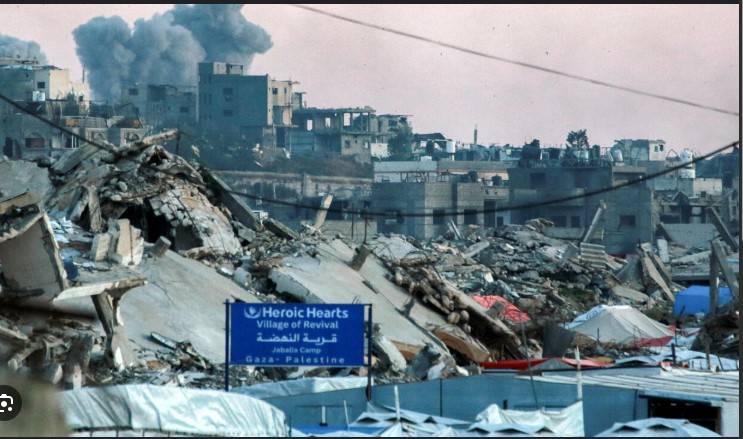Gaza, Jihad, Clowns

Stay tuned with 24 News HD Android App

Trump threatened to drop bombs, and Iran believed it would happen—so negotiations began immediately. The point is simple: no country wants war imposed on it. Especially when faced with a superior power, no one wants to get entangled. This same principle applied to Hamas as well. Before attacking Israel, they should have thoroughly assessed their military capabilities and the consequences. War is not a game where a whistle is blown and everything stops. Once fighting starts, unexpected events occur. There is a fundamental difference between defence and offense.
When Hamas attacked Israel and people warned that genocide would follow in Gaza, territory would be lost, and no country would intervene—those warnings were met with emotional criticism. But those who couldn’t see the writing on the wall didn’t change the facts by closing their eyes. Israel unleashed hell on Palestinian civilians—after killing over sixty thousand people including children, the elderly, and women, it broke the ceasefire agreement itself. Protests erupted not only in Muslim countries but around the world against Israeli atrocities. Videos and images from the war zone have shaken people’s hearts. The bombings have not stopped.
In such a situation, if Pakistan’s religious scholars issue a fatwa that jihad has become obligatory, why is there such an uproar? What the scholars are saying is 100% correct—but those who are to wage jihad must first assess their own conditions, strength, and preparedness, as well as the consequences for their own countries. Jihad here means a war fought at the state level—not individually or by groups. If states do not find themselves capable, then just like before, no one will become a party to this war.
It’s bizarre hypocrisy: if people stay silent, they’re asked “where is your religious honour?” But if fatwas are issued or calls for boycotts made, then people mock the scholars for creating a spectacle. Naturally, when hearts ache, protests will occur. Israel and its patrons will be boycotted—but it must also be ensured that such protests and boycotts do not result in any kind of loss of life or property. If all we can do from within our own country is show solidarity, then we absolutely should—but with complete discipline. We must ensure that roads aren’t blocked, businesses stay open, and daily life continues normally.
Instead of self-destructive strikes in our own country, we should focus on collecting donations and providing resources to those offering medical and humanitarian aid in war-torn areas. Public protests are necessary—they send a message of the intensity of public anger against Israel’s bullying. But the leaders of such movements bear a heavy responsibility: they must not allow emotions to turn into violence. The state must deal with troublemakers using an iron hand, especially those who try to exploit the situation for personal or business vendettas. There should be no tension around foreign brand shops or restaurants. The people of Gaza have already suffered tremendous loss—those who damage their own country in the name of protest cannot be supported.
Solidarity must be expressed in a civilized manner, as is done in developed societies — where even in gatherings of millions, not a single flowerpot is broken. This is no longer the time to blame Hamas or those who pushed it into war. There should be only one goal: to stop the cycle of destruction. The small-minded elements who try to mock those protesting in support of Palestinians are nothing but clowns—just clowns.
Let me repeat: jihad must be state-led. The time for it may have come, but do the circumstances allow it? On one border is India, on the other Afghanistan. Baloch terrorist groups are so active in Iran that they are targeting Punjabis for killing. All other Muslim countries have their own problems too. Before blaming anyone else, one must consider—whom did Hamas consult before attacking Israel?
The need now is to save the remaining Palestinians, not to turn on one another.
